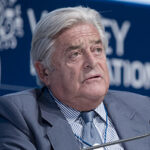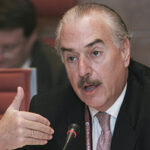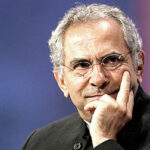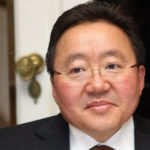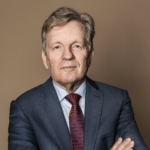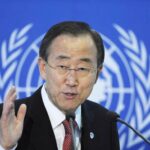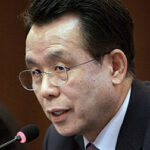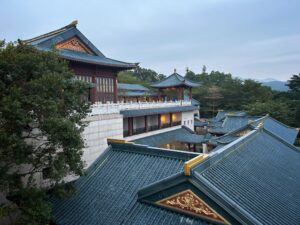Read the final statement from ISIF 2018
Vaira Vike-Freiberga on ISIF 2018
On occasion of the pivotal 40th anniversary of China’s opening up and reform process, 40 prominent leaders from all over the globe gathered in Guangzhou to lead the 2018 Imperial Springs International Forum (ISIF), which took place on December 10-11th. Out of these 40 leaders, 30 were Members of World Leadership Alliance – Club de Madrid (WLA – CdM). Conclusions of the event, titled ‘Advancing Reform and Opening Up, Promoting Win-Win Cooperation’, were shared later on with China’s President Xi Jinping.
Forty Chinese and international experts joined the global leaders at Imperial Springs (Guangzhou) to reflect on China’s transformation in these 40 years of reform and opening-up. This reflection around the past led to a lively debate about the present and the future of China and global governance, with a focus on analyzing China’s position among the trends that are shaping global order.
This year’s edition was recognized with the participation of the Vice-President of China, Wang Qishan, who underlined that “openness brings progress” and closure “causes people to fall behind”. In stark contrast with policies emanating from the United States, Vice President Qishan reaffirmed China’s commitment “to build an innovative and inclusive open world economy”. Furthermore, he highlighted China’s intention to uphold multilateralism and strengthen an inclusive rules-based global governance architecture.
Many Members of WLA – CdM and other global leaders unaffiliated to the organization rejected the current trade war between China and the US and supported reform of the World Trade Organization. Former leaders of countries like Mozambique, Afghanistan, Botswana, Colombia, Guyana, Zambia and Jamaica emphasized that countries seeking peace, development and stability should not be forced to choose between China and the United States. Similarly, former Heads of State and Government from several countries represented in the event pointed to their anxiety about the consequences of a potential trade war that affects a significant number of nations.
Meeting with Xi
Members of WLA – Club de Madrid and other Heads of State and Government shared the conclusions of ISIF 2018 with China’s President Xi Jinping in a meeting at the Great Hall of the People in Beijing.
Representatives from all five continents briefed President Xi Jinping on the conclusions of the forum, highlighting those topics and viewpoints that are most relevant for their regional areas.
The Chinese presidency welcomed the general message of the Forum: ‘Advancing Reform and Opening Up, Promoting Win-Win Cooperation’. “For more balanced and full development, we must further deepen reform and expand opening-up,” said Xi Jinping.
An overview of ISIF 2018 conclusions
Three Breakout Sessions held during ISIF dug deeply into some dimensions that are defining the shape of globalization nowadays: technology, trade and governance.
Technology: China’s technological metamorphosis has been unlike any other seen in the world. Today the country serves as a model for the fourth industrial revolution and has become a central player in developing technological innovations like artificial intelligence, quantum computing, Big Data, genetic editing and self-driving cars.
China has historically benefited from technology transfers. It should now, together with all other technologically advanced economies, help developing countries build their future by giving them access to new technologies.
Furthermore, it is important to promote access to high-quality education in developing countries, empowering people with productive and employable skills that fit the technologically advanced economies of tomorrow.
Trade: Participants highlighted the importance of physical and digital infrastructure to foster trade and fight climate change. “I don’t know a single country in the word that has developed without developing physical infrastructure”, said Festus Mogae, Member of WLA – CdM and former President of Botswana.
The Belt and Road Initiative, a Chinese cross-border macro-infrastructure project, provokes divisions among the international community, which were reflected in this session. While China presents the Belt and Road Initiative as an opportunity for third countries to overcome underdevelopment, particularly through investment in infrastructure and trade, the project generates skepticism in policy circles in the US and Europe. Nevertheless, the project is founded on China’s realization that its own prosperity is heavily dependent on the prosperity of the international community as a whole.
Reform of the WTO, strongly supported by China, was also heavily discussed during the session. A recent proposal agreed by China and the European Union, which recognizes the lack of methodology for reaching agreements within the WTO, the non-transparency of industrial subsidies, indirect subsidies of the public sector and treatment of intellectual property; was also discussed among participants. Overall, participants shared the perspective that achieving a win-win cooperation will require a more transparent and rules-based global governance.
Governance: Participants of this breakout session assumed that the current liberal order is constrained from within (lack of citizens’ trust in institutions and an increase in economic inequality), and from outside (rise of illiberal governments and climate change). A new global order that attains a more active multilateralism and the 2030 United Nations Agenda as its objectives would be more inclusive and constructive.
While globalization is an undeniable source of opportunities, it has not benefited all citizens. Common misconceptions of the critical issues of our time have forged a profound cleavage between political powers and the public. As a result, the session delved into the need to understand complex challenges, like climate change, growing inequality, migration and population ageing, so that global leaders craft the brave, sensible policies needed to address these threats.
The session concluded with a call for social justice and the eradication of marginalization by encouraging political participation and widening a social safety net for all.




